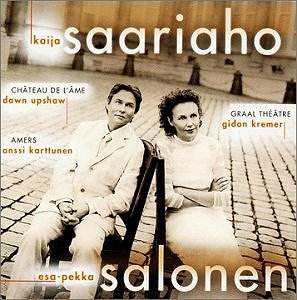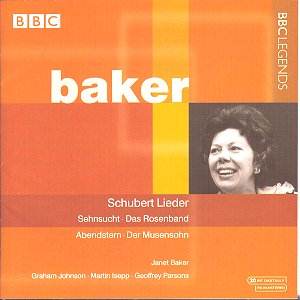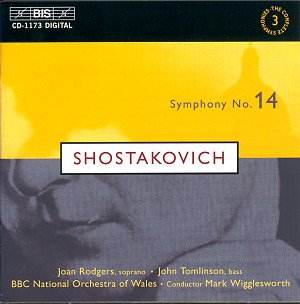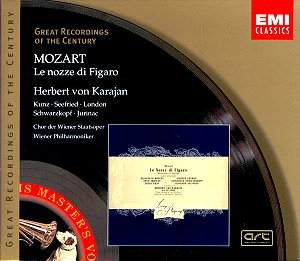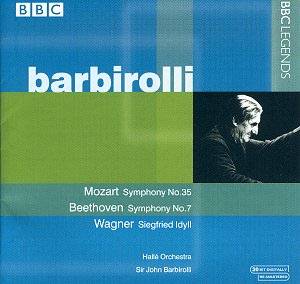 Composer: Wolfgang Amadeus MOZART
Composer: Wolfgang Amadeus MOZART
Works: Symphony No. 35 in D major, K.385, “Haffner”; Ludwig van BEETHOVEN, Symphony No. 7 in A major, Op.92; Richard WAGNER, Siegfried Idyll
Performers: Halle Orchestra, Sir John Barbirolli
Recording: Royal Albert Hall, London, 12 August 1967; Royal Festival Hall, London, 24 April 1968; BBC Studios, Manchester, 22 April 1966
Label: BBC Legends
The artistry of Sir John Barbirolli, a titan of the podium, shines through in this compilation of performances featuring the Halle Orchestra, showcasing a compelling blend of three significant works from the classical canon. Each piece—Mozart’s jubilant “Haffner” Symphony, Beethoven’s dramatic Seventh Symphony, and Wagner’s tender “Siegfried Idyll”—offers insights into Barbirolli’s interpretative genius and his capacity to evoke a unique character from each score.
The “Haffner” Symphony, performed during a Promenade Concert in 1967, bursts forth with an infectious vigor that is quintessentially Barbirolli. The first movement, with its buoyant rhythms and engaging lyrical lines, is marked by a sense of expansive joy rather than mere vivacity. Barbirolli’s approach emphasizes the orchestral texture, allowing the strings to exhibit a delightful agility and dynamic range that lifts the spirit. The concluding Rondo is especially notable, characterized by a dashing tempo that showcases the ensemble’s ability to navigate the intricate passages with both precision and exuberance. The sound, while expansive, occasionally skews towards the upper register, suggesting a need for some adjustment on playback equipment to fully appreciate the depth of this performance.
Transitioning to Beethoven’s Seventh Symphony, recorded for Barbirolli’s 70th birthday concert in 1968, one encounters a markedly different interpretation. Here, Barbirolli eschews the frenetic pacing often associated with this work, instead opting for a nuanced exploration of its rhythmic architecture. The Allegretto, a movement that can easily verge into somber territory, emerges under Barbirolli’s baton as a testament to resilience and optimism. The conductor’s meticulous attention to the rhythmic pulse infuses the music with a palpable sense of motion, while his deft shaping of the wind lines adds a distinctive character, marking this performance as one of great depth and insight. Despite the dry acoustic of the Royal Festival Hall, the recording captures a vibrant sound, particularly in the climactic passages of the final movement, where Barbirolli’s control transforms the expected rush into an exhilarating build-up of tension.
Wagner’s “Siegfried Idyll,” in contrast, showcases a more intimate side of Barbirolli’s artistry. Recorded in a Manchester studio, the sound quality here is less favorable, with a certain boomy quality that clouds the orchestral detail. Nevertheless, Barbirolli manages to elicit a warm, richly textured performance that breathes life into this pastoral meditation. The woodwind interludes possess an Elgarian nobility, and Barbirolli’s choice of slower tempos for the concluding section is a bold one, allowing the music to unfold with a lyrical grace that few contemporary conductors would dare to replicate. This thoughtful pacing imbues the work with a lingering poignancy that resonates long after the final notes have faded.
Barbirolli’s interpretations in this collection reveal not only his deep understanding of the repertoire but also his ability to draw out the intrinsic qualities of each work. The performances are marked by a combination of technical prowess and emotional depth, reflecting a conductor who was intimately acquainted with the music he cherished. While sound quality varies across the recordings, the overall impact of this compilation is undeniable. It stands as a testament to Barbirolli’s enduring legacy, filling gaps in his discography with performances that are both unique and illuminating. Collectively, this disc serves not merely as a historical document but as a vibrant reminder of the artistry that defined one of the 20th century’s most beloved conductors.
